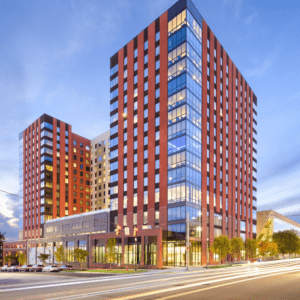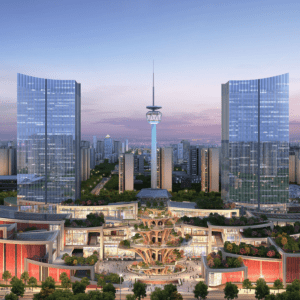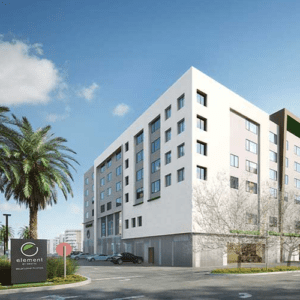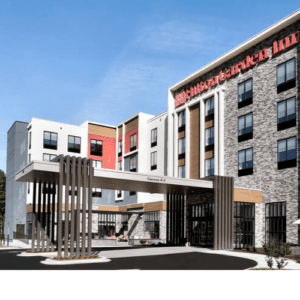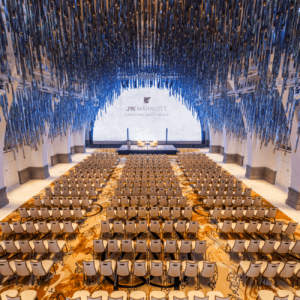 Following the unfortunate attacks in Catalonia, Spain last August 17, several clients have approached BRIC Consulting to hearÊtheir opinion on the expected repercussions in the accommodation sector, especially in the city of Barcelona.
Following the unfortunate attacks in Catalonia, Spain last August 17, several clients have approached BRIC Consulting to hearÊtheir opinion on the expected repercussions in the accommodation sector, especially in the city of Barcelona.
We have decided to make our estimates public as a sign of confidence in the future, both for the professionals of the sector as well as for their guests and clients.
This is, in any case, a first qualitative approach to the immediate reaction of demand and supply in the sector, based on the monitoring done from AugustÊ17-23 to variables published as rack tariffs, or more restricted access as fit and grp rates, in interviews conducted with some owners and managers of the executive management, reserves and revenue departments, chosen as significate representatives of different categories and segmentations, and finally in our knowledge of the market.
We offer you the following conclusions drawn from the identified points of agreement, including context mentions referring to the initial situation, which you can expand in the BRIC ConsultingÊBarcelona Hotel Market Report, presented July 2017, and to other related economic sectors, such as the air transport industry or the equity investment.
This first report will have a continuation in the coming weeks, once there is a greater perspective and sufficient quantitative data to identify determinant consequences. In any case, our first conclusions one week after the attack are as follows:
All the managers and hotel owners consulted reported having experienced cancellations of reservations in their establishments, although these were not particularly significant (between 2 per centÊand 3 per centÊin the worst case).
The evolution afterwards has compensated for these cancellations in the case of private reservations via internet portals type OTA (online travel agencies), but not in the case of direct requests from groups of more than ten people, which have reduced their demand remarkably.
In general, the volume and pace of new reserves has slowed down. In response to this, many hotels have reacted to the situation by applying two measures:
A policy of short-term discounts that would allow them not to lose market share
In general, these discounts have swung between 8 per centÊand 15 per cent. It is remarkable to note the case of chains with great presence in the city or that concentrate much of its total urban supply in Barcelona, whose tactic could be described as aggressive in the days immediately after the attack, with a 38 per centÊdiscount in those hotels closest to the Gothic Quarter with respect to the previous rates or up to 50Êper centÊin some well-located but not central.
Reducing or suppressing the minimum stay required on certain dates (before it was an average ofÊthree nights)
These decisions have allowed to keep occupancy levels around 90 per centÊbut will surely reduce somewhat the average price and profitability in RevPAR terms at the end of the year compared to the optimistic expectations a few weeks ago.
Fortunately, factors such as the holding of the Congress of the European Society of Cardiology started last Saturday, August 26, with about 32,000 confirmed delegates who had already committed their trip and stay, will cushion this slowdown and the impact of the tariff adjustment.
There is not a different pattern of behaviour in reservations between international and local guests. While it is true that North American and Asian tourists are historically more sensitive to these unfortunate events, it is still too early to identify such specific reaction.
It should be noted here that, in the first days after the attacks, airlines like Norwegian adjusted their fares to Barcelona to about 40 per centÊfrom their recently launched destinations in the United States. More modest were the adjustments in the rates of Ryanair, which were between 5 per centÊand 7 per cent.
All managers consulted are optimistic about the recovery of normality in the short and medium term. In fact, the common opinion is that the demand has reacted better than expected, beyond the feeling of unity and solidarity that usually occurs in these cases, keeping firmly their will to visit the city in the coming weeks and months. It should be remembered that holidaymakers accounted for almost 56 per centÊof the total in 2016, so that the predominant profile in the city would count a priori with numerous alternative destinations if Barcelona would not transmit an image of enough confidence regarding to its security.
Although, we insist, it is still early to estimate what the medium-term evolution of the market may be, there is a consensus in believing in a complete recovery of the destination, taking into account that the total volume of reservations a week later remains considerably high.
In the case of tourist apartments, we detected a volume of cancellations higher than that registered in hotels (4 per centÊon average) but, in any case, much lower than expected by its managers. The reason is not the nationality of its customers but its typology: being more used by families, the reaction has proven to be more conservative than in the case of regulated hotel accommodation.
We consider it interesting to highlight the comment from one of the hotel responsible persons consulted regarding the international offer: in his opinion, the attack in Barcelona has had a much smaller impact on the total number of cancellations during these first days in comparison with Paris (20 per cent) or Brussels (35 per cent), where his company also manages apartments.
Finally, with regard to the hotel investment market, operations with negotiations underway or pending signature in September for the performance of due diligences, go ahead without any news.
Note on the methodology used:
For the dynamic comparison:
Evolution of the three-month rates offered from August 17-23, 2017 for a competitive set of eleven hotels in the 22@ District, eleven hotels in the Gothic Quarter andÊ11 hotels in the Eixample District (more than 5,500 rooms in total, categories 3, 4 and 5 stars).
For interviews:
Processing of an open-ended questionnaire to:
Two owners and one director of five-star hotels (175 rooms in total)
Two directors of four-star hotels (417 rooms), one of them, aware of the price policy of one of the first three strings in the city by number of rooms.
A director and owner of three-star hotels (120 rooms)
A Revenue manager, responsible for the analysis of commercial data, competition study and price policy of several independent hotels (more than 250 rooms in charge)
Two business development managers of companies managing tourist apartments (more than 2,000 apartments in the city)
Want to keep up to date with industry news? Click here to subscribe toÊeHotelier’s dailyÊe-newsletter.


 Following the unfortunate attacks in Catalonia, Spain last August 17, several clients have approached BRIC Consulting to hearÊtheir opinion on the expected repercussions in the accommodation sector, especially in the city of Barcelona.
Following the unfortunate attacks in Catalonia, Spain last August 17, several clients have approached BRIC Consulting to hearÊtheir opinion on the expected repercussions in the accommodation sector, especially in the city of Barcelona.








